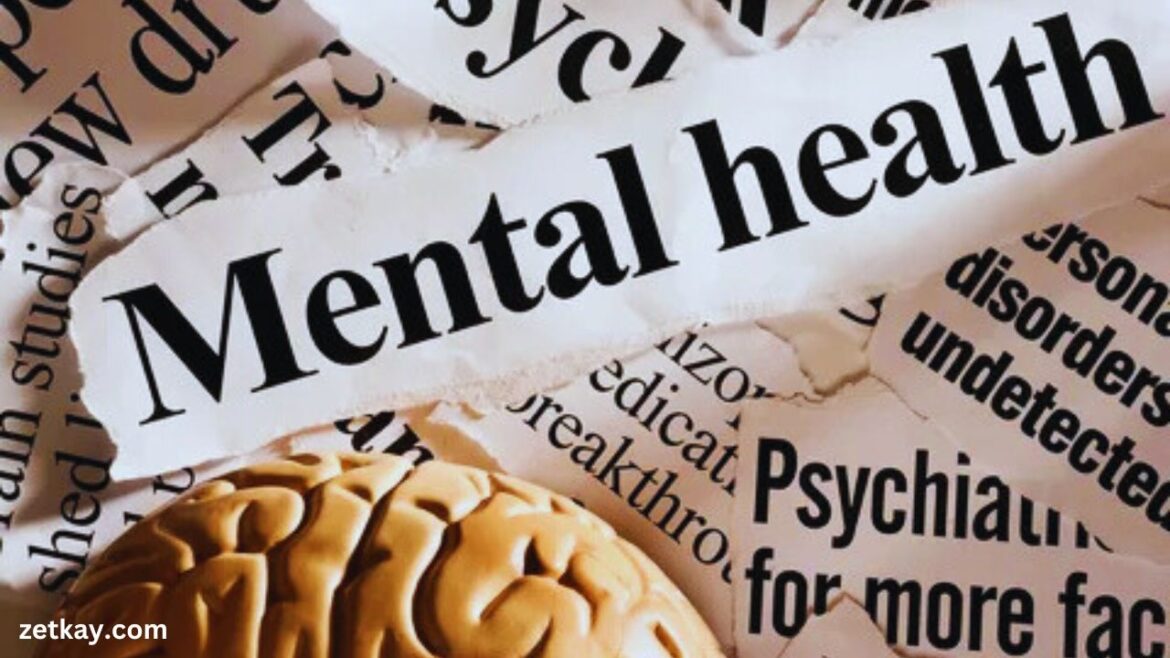Discover how exercise improves mental health, with data showing up to 80% of people experiencing reduced stress, anxiety, and enhanced mood through physical activity. Learn about the science, benefits, and tips to boost mental well-being with exercise.
Mental health is a cornerstone of overall well-being, and exercise plays a crucial role in fostering it. But how does physical activity influence mental wellness, and what percentage of people have experienced its benefits? Let’s dive into the research, explore how exercise works wonders for the mind, and understand its impact on brain health.
The Link Between Physical Activity and Emotional Well-being
Exercise isn’t just about building muscles or shedding pounds; it’s a scientifically-backed mood booster. Engaging in physical activity stimulates the production of endorphins—natural chemicals that elevate mood and reduce feelings of pain. Moreover, regular exercise combats the harmful effects of stress hormones like cortisol, creating a calming effect.
Importance of Mental Health in Modern Society
In today’s fast-paced world, mental health issues such as anxiety and depression have surged. Studies indicate that over 1 in 5 adults experience mental healths challenges annually. With traditional treatments like therapy and medication sometimes inaccessible, exercise provides a readily available, cost-effective solution for improving mental well-being.

Research on Exercise and Mental Health Improvements
Statistics on Exercise’s Effects on Mental Well-being
A growing body of evidence shows that exercise significantly improves mental healths. For example, a study by the Centers for Disease Control and Prevention (CDC) found that 79% of people who incorporated exercise into their routines reported improved mood and reduced stress levels.
Key Studies Highlighting the Mental Health Benefits of Exercise
Research published in journals like The Lancet Psychiatry suggests that regular physical activity reduces the risk of depression by 25% or more. Similarly, findings from Harvard Medical School highlight that even 15 minutes of exercise daily can lower the risk of major depressive disorders by 26%.
See Also:
How to Improve Gut Health Naturally
Tramadol, Uses, Side Effects, Dosage
15 Best Sciatica Exercises For Pain Relief
How Exercise Improves Mental Health
Release of Endorphins and Mood Boost
Physical activity triggers the brain to release endorphins, which act as natural mood elevators. This biochemical reaction is often called the “runner’s high,” where individuals experience euphoria post-workout. These effects aren’t limited to running; activities like swimming, cycling, or brisk walking can elicit similar results.
Exercise as a Stress Reliever
Exercise also serves as a powerful stress-management tool. By reducing cortisol and adrenaline levels, physical activity helps individuals feel more relaxed and centred. Moreover, engaging in structured workouts provides a mental escape, allowing participants to focus on movement rather than their worries.
Enhanced Cognitive Function and Mental Clarity
Beyond emotional benefits, exercise sharpens the mind. Aerobic activities increase blood flow to the brain, enhancing memory, focus, and overall cognitive function. Unsurprisingly, professionals and students alike turn to exercise to boost productivity and performance.
What Percent of People Found Exercise Improved Mental Health?
Global Surveys and Data Analysis
Global research has consistently affirmed that most individuals recognize the mental health benefits of exercise. In a World Health Organization (WHO) survey, approximately 80% of respondents reported experiencing improved brain clarity, reduced anxiety, and enhanced mood after adopting regular physical activity.
Case Studies and Individual Reports
Real-life stories paint an even more compelling picture. For instance, individuals battling severe depression have reported life-changing improvements in their mental health after incorporating regular exercise into their routines. These personal testimonials highlight the transformative power of movement.
Conclusion
Exercise is more than just a physical endeavour; it’s a powerful tool for nurturing mental health. Research consistently highlights that regular physical activity can enhance mood, reduce stress, and even alleviate symptoms of anxiety and depression. Whether it’s a brisk walk, yoga session, or weightlifting, incorporating movement into your daily routine can profoundly impact your emotional well-being.
By understanding how exercise improves mental health and exploring the variety of workouts available, anyone can find a regimen that suits their lifestyle. Remember, every small step toward regular activity counts, and the benefits extend beyond the gym. It’s time to prioritize your mental health—start moving today!
FAQs
1. How quickly can exercise improve mental health?
Exercise can provide immediate mental health benefits, such as stress reduction and mood improvement, often noticeable after just one session. Consistent exercise over weeks or months leads to more lasting effects.
2. Are there exercises best suited for anxiety relief?
Mind-body practices like yoga, tai chi, and breathing-focused workouts reduce anxiety. Aerobic exercises like walking, running, or cycling can also help manage stress.
3. Can exercise replace traditional mental health treatments?
While exercise is a powerful complementary tool, it may not entirely replace therapy or medication for everyone. Consulting with a healthcare professional to develop a personalized plan is essential.
4. What are the risks of over-exercising for mental health?
Over-exercising can lead to burnout, increased stress, and physical injuries, which may negatively impact mental health. Balancing exercise with rest and recovery is key.
5. How can beginners start an exercise routine for mental health?
Beginners should start with manageable activities, such as a 10-minute daily walk or gentle yoga. Gradually increase the intensity and duration while listening to your body’s needs.
